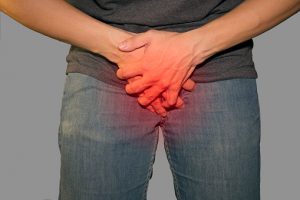 Urethritis is inflammation of the urethra, the tube that carries urine out of the bladder to be expelled from the body. It is commonly triggered by infection, but there are other causes as well. The condition may also go by the name non-gonococcal urethritis, when it is not caused by gonorrhea, a sexually transmitted disease.
Urethritis is inflammation of the urethra, the tube that carries urine out of the bladder to be expelled from the body. It is commonly triggered by infection, but there are other causes as well. The condition may also go by the name non-gonococcal urethritis, when it is not caused by gonorrhea, a sexually transmitted disease.
Both men and women can develop urethritis, although diagnosis is more common in men. This may be due to the fact, though, that many women with urethritis do not experience any symptoms.
Prevalence of urethritis
Advertisement
It is estimated that four million Americans suffer from urethritis each year, with the incidence of gonococcal urethritis estimated to cause nearly 700,000 new cases annually, while the incidence of non-gonococcal urethritis is estimated to be around three million new cases per year. Worldwide, approximately 62 million and 89 million new cases of gonococcal and non-gonococcal urethritis respectively occur each year.
Causes of urethritis
The most common cause of urethritis is bacteria or a virus. The bacteria causing urethritis are the same that cause bladder and kidney infections. Additionally, bacteria found around the genital area may enter the urethra, too, thus causing urethritis. These bacteria include Neisseria gonorrhoeae, Chlamydia trachomatis, and Mycoplasma genitalium.
Viruses that can cause urethritis include human papillomavirus (HPV), the herpes simplex virus, and the cytomegalovirus.
Signs, symptoms, and complications of urethritis in men and women
Signs and symptoms of urethritis can differ in men and women. In fact, many women may not even experience any symptoms at all. Typical symptoms that may occur in men are painful or burning sensation when urinating, irritation on the tip of the penis, and a white, cloudy discharge from the tip of the penis.
For women, symptoms of urethritis include frequent urge to urinate, discomfort while urinating, pain in the abdominal area, high body temperature, chills, urgent need to urinate, and abnormal discharge from the vagina.
Left untreated, urethritis can lead to long-lasting and quite serious complications. For example, the infection may spread to other parts of the urinary tract, such as the kidney and bladder, leading to subsequent painful infections. If no antibiotic treatment is started, serious damage to these organs may also occur, resulting in infection spread to the blood and a resulting life-threatening condition known as sepsis.
Additional complications include the development of pelvic inflammatory disease (PID) in women, which can lead to infertility, ongoing pelvic pain, and even pain during sexual intercourse. Untreated infections in men may also lead to infections of the prostate gland or scarring of the urethra.
Treatment and diagnosis for urethritis
Diagnostic process for urethritis starts with a doctor’s appointment and referral for testing. Two main tests to diagnose urethritis are a swab test and a urine test. For the swab test, your doctor will collect fluid from the urethra, and the sample will then be examined under a microscope to find bacteria. The urine test involves examining a urine sample. For better reliability, the doctor may ask you not urinate for up to two hours before the test.
Once your doctor has obtained the results, they will be able to diagnose your condition and offer treatment recommendations.
Treatment options for urethritis usually involve either antibiotics or antiviral medications. It’s important that you follow your treatment as prescribed to cure urethritis and lower your risk of complications. If urethritis was caused by a STD, both partners will need to take the medication prescribed.
Home remedies to get rid of urethritis
Drink a lot of fluids: Helps to flush out the system of harmful toxins, bacteria, and or infections. Drinking plenty of water will also help to dilute your urine making it easier to pee pain-free.
Herbal tea: A great natural remedy for combating inflammation and infection as many herbal teas contain antibacterial or antimicrobial properties. It is recommended to drink two or more glasses of herbal tea per day for the best results.
Essential oils: Lemon, fennel, geranium, and juniper are all effective oils that can be massaged on the back and stomach to help relieve pain. They also have relaxing properties that can help reduce stress.
Multivitamin: A good way to prevent vitamin deficiency as well as promote the body’s immune system to fight off infections causing urethritis.
Cat’s claw: A herb with antibacterial properties and antiviral effects. It can be found in supplement form, and be used to help boost the immune system.
Cranberry juice: A widely used home remedy for the prevention of urinary tract infections, cranberry juice also plays a crucial role in ensuring the reduction of pH levels in your urine. It does this as a result of benzoic acid, of which cranberry juice is a good source of.
Hot bath: The warmth of hot water can help soothe inflammation and help mitigate pain as a result of urethritis. It can also promote circulation and healing.
Preventing inflammation of the urethra
Advertisement
Like with most other forms of infectious conditions, prevention is the best form of treatment. It is important to understand how you can contract the condition or to ensure preventative measures are in place. Because bacteria are the main culprit and sex is the main mode of transmission, practicing safe sex is highly recommended. This means always using condoms, getting tested regularly, and avoiding sex with multiple partners.
Additionally, it may be beneficial to promote good urinary tract health, as it may lower your risk of urethritis. This can be achieved by drinking plenty of water, urinating shortly after intercourse, and avoiding acidic foods.
[adstoappear]